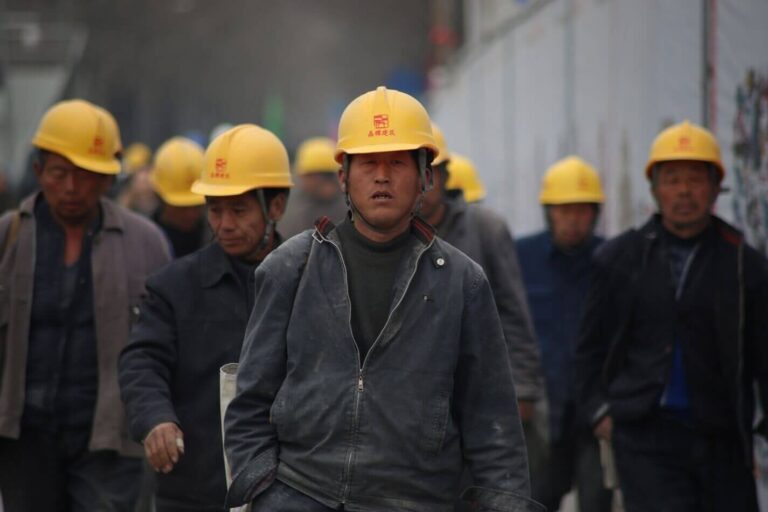is zara a fast fashion brand?
zer da fast fashion?
Fast Fashion can be explained as cheap, in-vogue clothing that takes ideas from the catwalk or high-fashion culture and erosleen beharrak asetzeko arriskutsuki azkar dendetan arropa-artikulu bihurtzen ditu, jasangarritasuna kontuan hartu gabe.
Ideia da eskuragarri dauden estilo freskoenak ahalik eta azkarren eskuratzea, bezeroek jan ditzaten gaur egun bere ospearen gailurrean dauden bitartean eta gero, tragikoki, bota egin ditzakete pare bat higaduraren ondoren.Moda azkarra munduko kutsatzaile handienetako bat bihurtu duen kutsadura kaltegarriaren, hondakin toxikoen, gehiegizko ekoizpenaren eta aprobetxamenduaren funtsezko zati bat biltzen du, berotegi-efektuko gasen isurien % 10 ekoizten baitu.
If you want to know more about fast fashion and its consequences on our society,begiratu artikuluamoda azkarra arazo soziala al da?
is zara fast fashion?
Zara is a brand owned by the group Inditex, which owns many other brands like Pull&Bear and Stradivarius. So their business practices can be extrapolated to all of the other brands in one way or another.
Zara not only IS a Fast Fashion brand, but they are the pioneer of this unethical business practice. Furthermore, the term Fast Fashion was created in the 90s by the New York Times to describe how Zara took designs from paper to the store in less than two weeks.
So yes, Zara not only is Fast Fashion, but it’s the brand that first created and pioneered this business practice. So now we know who to blame for the unsustainability of today’s fashion industry.

how zara treats the environent
We know that Zara basically created Fast Fashion and the terrible consequences of this business practice on today’s world, but that was many years ago, what is the environmental impact of Zara today?
We first need to point out that Zara doesn’t even have a page where they talk about sustainable practices or anything at all, which is a huge red flag.
Overall, Zara doesn’t have good practices at all, they are a Fast Fashion brand and like any other Fast Fashion brand, they have a very bad impact on the environment. They produce a ton of low-quality clothes with harmful materials that are ditched quickly, producing, even more, waste and pollution.
However, Zara is starting new products to become more „sustainable”, but sadly there is no evidence any of these programs are doing something at all and it seems they are just an unethical marketing campaign.
how zara treats workers
We know what Zara is doing for (or should we say against) the environment, but, what are they doing regarding the working conditions of their factory workers?
Zara has factories all across the globe, in countries such as Spain, Brazil, Myanmar, Turkey… Note how they have factories in countries that may be considered developed, but as we will see this does not mean that the workers are in decent conditions with decent wages.
Zara and the group Inditex have been involved in a LOT of scandals regarding the working conditions in their factories, for example, the factories they have in Sinkiang, China, where there are „job training centers” that are working to benefit the Uighur population according to the Chinese government, which is a fancy way of saying slave-like labor.
Not only that, but the factories they have in Brazil or Turkey or even Spain are not good either, they have also been involved in scandals for using basically slave labor in Brazil, for not paying workers in Turkey, and for the bad conditions the workers have in Spain,even though we may think workers in these countries have better conditions than others. They have also been reported for discriminating against immigrants in Brazil and for taking covid measures just in Spain during the pandemic while workers in other countries were completely unprotected.
The truth is, as we said, having factories in „developed” countries doesn’t mean that the workers have good working conditions or a decent wage. For example, receiving a $1000 wage in Spain is usually just as good as a $500 wage in Romania, and depending on where you live, you may even be better off with $500 in Romania because of the currency change and cost of living.
Overall, worker conditions are Zara’s biggest flaw, and they have a LOT more scandals and controversies regarding this subject. If you want to know more about this, check Impact Policies’ article on Zara.

laburpen
To sum it all up, Zara seriously needs to change their business model to adapt to today’s standards and to reduce its terrible impact on the environment and especially its workers. But they will not do that unless people become aware of this problem and stand up against Zara and Fast Fashion.
Gaur asko ikasi izana espero dugu, pozten gara mundu osoko jendeari irakastea :). Bide batez,Ezagutzen al duzu moda azkarra eta ingurumenean, pertsonengan eta ekonomian dituen ondorio ikaragarriak? Ba al dakizu zer den Slow Fashion edo Sustainable Fashion mugimendua? Gai ezezagun baina premiazko honi buruzko artikulu hauek irakurri behar dituzu, egin klik hemen "Moda jasangarria izan al daiteke inoiz?", ezagutza boterea da, ezjakintasuna hondamena da.
Sorpresa handi bat ere badugu zuretzat! We have prepared a carefully dedicated About Us page where we will tell you who we are, what we do, our mission, our team, and many more! Ez galdu aukera hauetaegin klik hemen egiaztatzeko. Gainera, gure bisitatu dezakezuPinterest, non ziur asko gustatuko zaizkizun modari lotutako eduki iraunkorra eta arropa diseinuak antolatzeko.
Zabaldu mezua:
- Egin klik Pinterest-en partekatzeko (Beste leiho batean irekiko da)
- Egin klik Twitter-en partekatzeko (Beste leiho batean irekiko da)
- Egin klik Facebook-en partekatzeko (Beste leiho batean irekiko da)
- Egin klik WhatsApp-en partekatzeko (Beste leiho batean irekiko da)
- Egin klik Reddit-en partekatzeko (Beste leiho batean irekiko da)
- Egin klik Telegramen partekatzeko (Beste leiho batean irekiko da)
- Egin klik LinkedIn-en partekatzeko (Beste leiho batean irekiko da)
- More
